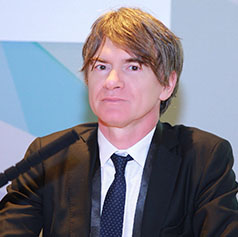Sessions
Advanced Cardiac Imaging & Diagnostics
Advanced cardiac imaging and diagnostics have transformed the precision, speed, and depth with which cardiovascular diseases are detected. High-resolution modalities such as cardiac MRI, CT angiography, PET scans, 3D echocardiography, and hybrid imaging techniques now provide unparalleled visualization of myocardial function, structural defects, blood flow patterns, plaque characteristics, and early tissue abnormalities. These technologies enable clinicians to diagnose conditions earlier, before symptoms become severe or irreversible. Artificial intelligence and machine-learning algorithms further enhance diagnostic accuracy by identifying subtle patterns that human interpretation might overlook. Portable and point-of-care imaging tools are expanding access to advanced diagnostics in underserved settings, supporting equitable care delivery. Quantitative imaging biomarkers are increasingly used to guide treatment decisions, stratify patients based on risk, and evaluate therapeutic responses over time. With the growing demand for precision cardiology, advanced imaging supports personalized therapeutic planning—from identifying the best interventional approach to monitoring long-term recovery. As innovation accelerates, imaging is evolving beyond visualization into predictive modeling, enabling clinicians to anticipate future cardiovascular events and intervene earlier to improve outcomes.
Heart Failure Management & Therapeutic Advances
Heart failure management continues to evolve with the introduction of targeted therapies, device innovations, and personalized treatment models. New pharmacological options such as SGLT2 inhibitors, ARNI combinations, mineralocorticoid receptor antagonists, and advanced beta-blocker strategies have significantly improved survival and reduced hospitalization rates. Precision-based care that incorporates biomarkers, genetic testing, and remote monitoring allows clinicians to adjust treatment based on real-time patient data. Mechanical circulatory support devices—including modern LVADs—offer life-sustaining support for severe cases, while research into total artificial hearts continues to advance. Cardiac rehabilitation programs, nutritional optimization, and patient-specific exercise protocols support long-term functional recovery. Telehealth platforms and wearable cardiac monitors detect early signs of decompensation, enabling timely interventions that prevent acute events. Research into stem-cell–based therapies and cardiac regeneration provides hope for restoring damaged myocardium rather than merely managing symptoms. Together, these innovations reflect a proactive model focused on improving quality of life, slowing disease progression, and ensuring better long-term outcomes for heart failure patients.
Interventional Cardiology & Structural Heart Disease
Interventional cardiology has advanced rapidly with minimally invasive techniques that offer safer, faster, and more effective treatments for coronary and structural heart conditions. Procedures such as TAVR, TMVR, PCI optimization, septal defect closures, left atrial appendage occlusion, and endovascular valve repair now serve patients who were once considered high-risk for surgery. Innovations including intravascular imaging, robotic-assisted interventions, and AI-guided navigation significantly enhance procedural accuracy. Drug-coated balloons, bioresorbable scaffolds, intravascular lithotripsy, and pressure-based lesion assessment tools improve outcomes for complex coronary disease. For structural heart disorders, advanced imaging integration supports tailored planning and reduces procedural complications. Real-time fusion imaging, 3D mapping, and anatomical modeling further refine therapeutic strategies. These advancements have improved survival rates, shortened recovery times, and expanded the range of treatable patients, particularly elderly individuals with multiple comorbidities. As next-generation devices and digital technologies continue to evolve, interventional cardiology remains central to redefining the future of cardiovascular therapy.
Regenerative Cardiology & Stem Cell Therapies
Regenerative cardiology is redefining the possibility of repairing or replacing damaged heart tissue through biological restoration. Stem-cell–based therapies—including induced pluripotent stem cells, mesenchymal stem cells, cardiac progenitors, and engineered tissues—are being studied for their ability to regenerate myocardium, reverse fibrosis, stimulate angiogenesis, and improve cardiac function after injury. Gene-editing platforms like CRISPR and RNA-based technologies further enhance cell viability, integration, and therapeutic impact. Researchers are exploring cardiac patches, injectable biomaterials, and tissue-scaffold constructs designed to repair infarcted regions and restore contractility. Bioactive molecules and exosomes derived from stem cells provide additional regenerative pathways without requiring cell transplantation. Clinical trials continue to refine safety, dosing, and delivery methods to maximize therapeutic efficacy. Although full myocardial regeneration remains complex, progress in cellular engineering, immune modulation, and precision delivery systems is rapidly pushing the field toward clinical reality. The long-term vision is to transition from managing heart disease to reversing it, offering new hope to patients with previously irreversible cardiac damage.
Bioengineered Heart Repair & Tissue Engineering
Bioengineered heart repair integrates biomaterials, tissue engineering, and synthetic biology to rebuild functional cardiac structures. Engineered tissues created using scaffolds, hydrogels, extracellular-matrix analogs, and lab-grown cardiac cells can mimic natural myocardium, offering potential solutions for repairing large-scale damage. Innovations such as 3D-printed heart tissues, biocompatible polymers, and decellularized organ matrices allow researchers to produce highly realistic cardiac constructs that integrate seamlessly with host tissue. Advances in microfluidics and bioreactor systems support the cultivation of vascularized heart tissue capable of sustaining long-term function. Tissue-engineered valves, patches, and vascular grafts are already showing clinical promise for patients with structural heart defects. Combining gene editing, growth-factor modulation, and mechanical conditioning enhances the maturation and durability of engineered tissues. Bioengineered organoids and heart-on-a-chip platforms also serve as powerful tools for drug testing and personalized therapy modeling. As scientific progress continues, bioengineered heart repair may eventually provide alternatives to transplantation and long-term mechanical support devices.
Cardiac Surgery Innovations & Robotic Systems
Cardiac surgery is undergoing a major transformation driven by robotics, minimally invasive approaches, and precision-guided technologies. Robotic-assisted systems enhance surgeon dexterity, visualization, and control, allowing complex procedures through smaller incisions and reducing overall trauma. Minimally invasive valve surgeries, coronary artery bypass techniques, hybrid revascularization, and advanced thoracoscopic approaches significantly reduce postoperative pain, infection risk, and recovery time. Enhanced imaging integration, 3D mapping, and intraoperative perfusion monitoring provide detailed real-time insights that improve surgical safety and accuracy. Custom-designed grafts, patient-specific 3D models, and augmented-reality guidance further refine surgical planning. Novel cardiopulmonary bypass strategies, micro-instrumentation, and improved myocardial protection techniques enhance outcomes for high-risk patients. As robotics and automation evolve, future cardiac surgery may incorporate AI-guided suturing, automated tissue stabilization, and precision reconstruction tools. These technological advancements ensure that surgical intervention remains a robust and effective option for a wide range of cardiovascular conditions.
Arrhythmias, Electrophysiology & Pacemaker Technologies
Arrhythmia management has advanced significantly with innovations in electrophysiology mapping, ablation systems, and implantable pacing devices. High-resolution electro-anatomical mapping provides detailed insights into conduction pathways, enabling precise identification of arrhythmic foci. Catheter ablation techniques—radiofrequency, cryoablation, laser ablation, and pulsed-field ablation—offer safer and more targeted destruction of abnormal tissue while minimizing collateral damage. Modern pacemakers and defibrillators have become smaller, smarter, and more durable, with features such as leadless implantation, wireless communication, and adaptive pacing algorithms. Wearable cardiac monitors and implantable loop recorders enhance long-term rhythm tracking. Advances in genetic screening allow clinicians to identify inherited arrhythmia syndromes and tailor therapies accordingly. AI-based predictive tools help anticipate arrhythmia triggers and optimize device programming for each patient. As research progresses, next-generation cardiac rhythm technologies aim to restore intrinsic conduction and reduce dependence on lifelong device implantation.
Cardiometabolic Health & Preventive Cardiology
Cardiometabolic health emphasizes the prevention and early management of conditions such as hypertension, diabetes, dyslipidemia, obesity, and metabolic syndrome—all major contributors to cardiovascular disease. A comprehensive preventive strategy integrates lifestyle optimization, targeted medications, and personalized risk assessment. Novel lipid-lowering therapies, GLP-1 agonists, and advanced glucose-management drugs support metabolic stability and reduce cardiovascular risk. Wearable devices, digital health platforms, and remote coaching empower individuals to monitor and improve their daily habits. Genomic markers, inflammatory biomarkers, and coronary calcium scoring enhance early detection of high-risk individuals. Population-level prevention focuses on nutrition awareness, physical activity promotion, smoking cessation, and environmental risk reduction. Multidisciplinary care models involving cardiologists, endocrinologists, dietitians, and physiologists provide comprehensive support. The overarching goal is to prevent disease onset, slow progression, and reduce healthcare burden by cultivating a heart-healthy population through science-based preventive strategies.
Digital Health, AI & Remote Cardiac Monitoring
Digital health and artificial intelligence are transforming cardiovascular care delivery by enabling real-time monitoring, predictive analytics, and remote intervention. Wearable devices, smart patches, mobile ECG tools, and implantable sensors continuously track vital signs, arrhythmias, and hemodynamic changes. AI-powered algorithms analyze massive datasets to detect abnormalities earlier and predict the likelihood of acute cardiac events. Telecardiology platforms allow clinicians to manage patients remotely, reducing unnecessary hospital visits and improving access for rural communities. Virtual cardiac rehabilitation programs provide structured lifestyle guidance, exercise monitoring, and education. Machine-learning models assist in risk scoring, imaging interpretation, and clinical decision support, ensuring more accurate and timely care. Digital therapeutics deliver personalized interventions for hypertension, heart failure, and rhythm disorders. As the digital ecosystem expands, the integration of secure data sharing, cloud-based platforms, and patient-centered apps strengthens continuity of care. This technology-driven approach enhances efficiency, reduces costs, and improves long-term cardiac outcomes.
Pediatric Cardiology & Congenital Heart Conditions
Pediatric cardiology focuses on early detection, management, and long-term care of congenital and acquired heart conditions in infants, children, and adolescents. Advancements in fetal echocardiography, neonatal imaging, and genetic diagnostics enable earlier identification of structural abnormalities and arrhythmias. Minimally invasive pediatric interventions—such as device closures, balloon valvuloplasty, and stent placement—reduce surgical trauma and improve recovery. Complex congenital defects requiring surgery benefit from refined cardiopulmonary bypass techniques, neonatal cardiac surgery advancements, and hybrid surgical-interventional approaches. Long-term management includes monitoring growth, neurological development, and transition to adult congenital heart programs. Innovations in pediatric heart failure management, mechanical support devices, and regenerative therapies offer hope for children with severe conditions. Psychosocial support, parental education, and family-centered care strengthen overall outcomes. As survival rates improve, emphasis grows on ensuring healthy adulthood and lifelong cardiac wellness.
Women’s Heart Health & Hormonal Influences
Women’s cardiovascular health requires specialized attention due to unique hormonal, metabolic, and physiological factors that influence risk and disease presentation. Conditions such as pregnancy-related hypertension, gestational diabetes, peripartum cardiomyopathy, and autoimmune disorders often contribute to long-term cardiovascular risk. Women may experience atypical symptoms during acute events, leading to delayed diagnosis. Research into hormonal influences shows strong connections between menopause, estrogen decline, endothelial dysfunction, and increased risk for coronary artery disease. Focused prevention programs emphasize early screening, lipid management, stress reduction, and lifestyle modification tailored to women’s needs. Advances in diagnostic tools aim to improve detection of microvascular dysfunction, spontaneous coronary artery dissection, and other conditions more common in women. Awareness campaigns and gender-specific research ensure that female patients receive equitable, evidence-based care. The goal is to bridge long-standing gaps and promote lifelong cardiovascular wellness for women across all stages of life.
Vascular Medicine & Endovascular Interventions
Vascular medicine encompasses the prevention, diagnosis, and treatment of arterial, venous, and microvascular disorders. Conditions such as peripheral artery disease, aortic aneurysms, carotid stenosis, venous thrombosis, and chronic limb ischemia require comprehensive evaluation. Endovascular interventions—including angioplasty, stent placement, atherectomy, and embolization—offer minimally invasive alternatives to open surgery. Technological innovations such as drug-eluting stents, covered stent-grafts, intravascular ultrasound, and optical coherence tomography enhance precision and long-term durability. Advances in clot-retrieval devices, thrombolytic therapies, and vascular robotics further refine procedural outcomes. Prevention strategies include aggressive risk-factor control, lifestyle optimization, and surveillance imaging. As research expands, vascular medicine continues to play an essential role in reducing cardiovascular morbidity and improving limb preservation, brain protection, and systemic vascular health.
Cardiac Pharmacology & Drug Development
Cardiac pharmacology is rapidly progressing with new therapies targeting heart failure, arrhythmias, thrombosis, hypertension, dyslipidemia, and inflammatory cardiac conditions. Drug development focuses on precision mechanisms such as neurohormonal modulation, metabolic optimization, and vascular endothelial protection. Novel lipid-lowering agents, antithrombotic drugs, SGLT2 inhibitors, and gene-based therapies offer diverse and powerful treatment options. Pharmacogenomics supports individualized medication selection based on patient-specific gene profiles, reducing adverse reactions and enhancing therapeutic outcomes. AI-driven drug discovery accelerates molecule identification and predicts efficacy before clinical trials. Long-acting injectables, combination therapies, and targeted delivery systems improve medication adherence. As the demand for safer, more effective cardiovascular drugs grows, research continues to advance therapeutic innovation that supports healthier and longer lives.
Emergency Cardiac Care & Acute Interventions
Emergency cardiac care plays a critical role in reducing mortality from acute events such as myocardial infarction, cardiac arrest, and life-threatening arrhythmias. Rapid assessment protocols, high-sensitivity biomarkers, and advanced imaging support immediate diagnosis. Innovations in reperfusion therapy, including faster PCI workflows and pharmacologic thrombolysis, significantly improve outcomes. Mechanical circulatory support devices such as ECMO and Impella provide stabilization during critical moments. Advanced CPR techniques, automated defibrillation technologies, and prehospital telemedicine enhance survivability. Emergency teams now utilize AI-driven triage algorithms and mobile ECG transmission to expedite care. Post-event management includes targeted temperature control, neurological monitoring, and structured rehabilitation. The focus remains on ensuring rapid treatment, reducing complications, and restoring long-term cardiac stability.
Global Heart Health, Policies & Public Awareness
Global heart health initiatives emphasize reducing cardiovascular disease burden through coordinated policies, public-health programs, and community education. Worldwide disparities in access to diagnostics, medications, and specialized care require comprehensive strategies that prioritize prevention, early intervention, and equitable healthcare distribution. Policies promoting tobacco control, healthy diets, physical activity, and clean air contribute significantly to heart-disease prevention. International collaborative programs support screening for hypertension, diabetes, and dyslipidemia in low-resource settings. Awareness campaigns help communities recognize early symptoms and seek timely care. Strengthening healthcare systems, training professionals, and expanding access to essential cardiac medications remain global priorities. As cardiovascular diseases continue to lead global mortality, unified international action is vital to improving outcomes and promoting heart-healthy societies.
Market Analysis
The global market for World Heart Care is experiencing significant expansion driven by rising cardiovascular disease prevalence, technological innovations, advancing therapeutic solutions, and growing awareness of preventive cardiology. Cardiovascular diseases remain the leading cause of mortality worldwide, accounting for more than 18 million deaths annually, which continues to create strong demand for diagnostic tools, interventional procedures, cardiac surgery innovations, digital health solutions, and long-term management therapies. This increasing burden is primarily associated with lifestyle changes, aging populations, obesity, diabetes, hypertension, and urban environmental stressors, all of which heighten the need for clinical and preventive cardiac care services. The cardiac diagnostics segment including advanced imaging, wearable monitoring devices, high-sensitivity biomarkers, and AI-driven screening is expanding rapidly. The integration of artificial intelligence into imaging interpretation, arrhythmia detection, and risk stratification is improving accuracy and reducing diagnostic errors. Remote cardiac monitoring, telecardiology, and digital health platforms have also gained tremendous traction, especially after the global shift toward virtual medical services. These technologies allow continuous patient evaluation, early detection of clinical deterioration, and reduced hospital readmissions, strengthening long-term demand for digital cardiovascular tools.
Interventional cardiology represents one of the fastest-growing segments. Procedures such as transcatheter valve replacement (TAVR), minimally invasive coronary interventions, structural heart repairs, and catheter-based electrophysiology solutions are becoming more widely adopted due to shorter recovery periods, improved safety, and expanding eligibility among high-risk patients. Innovations in stents, bioresorbable scaffolds, drug-coated balloons, and intravascular imaging devices continue to fuel market penetration. Additionally, pulsed-field ablation, robotic-assisted interventions, and hybrid interventional–surgical procedures are shaping the next generation of cardiac care. The market for regenerative cardiology and bioengineered heart repair is emerging as a transformative frontier. Stem-cell therapies, tissue engineering, gene editing, and bioengineered heart patches hold significant promise for addressing heart failure and post-infarction damage—conditions traditionally considered irreversible. Although still in clinical trial phases, these advancements are attracting substantial investments and positioning regenerative cardiology as a future high-growth market. Pharmaceutical advancements also contribute to market expansion. New drug classes for heart failure, dyslipidemia, thrombosis, and hypertension are improving outcomes and expanding therapeutic options. Personalized cardiac medicine supported by pharmacogenomics is anticipated to further increase the demand for tailored drug regimens. On the preventive care side, increasing global awareness of lifestyle-related cardiovascular risk factors has created a growing consumer market for wellness technologies, nutritional supplements, health coaching, smart wearables, and digital behavior-modification tools. Governments and public health agencies are implementing national heart-health campaigns, further stimulating investment and innovation across the prevention spectrum. North America and Europe currently dominate the market due to advanced healthcare infrastructures, high adoption of cutting-edge technologies, and strong R&D ecosystems. However, the Asia-Pacific region is witnessing the fastest growth, driven by large patient populations, improving healthcare facilities, and rising economic capacity. Low- and middle-income countries are also increasing investments in cardiovascular screening programs, opening new opportunities for affordable diagnostic and therapeutic solutions. Overall, the World Heart Care market is progressing toward a future defined by digital transformation, personalized therapies, minimally invasive interventions, and biologically engineered treatments. Accelerated innovation, expanding global demand, and increasing public awareness collectively position the field as one of the most dynamic and impactful healthcare markets worldwide.








